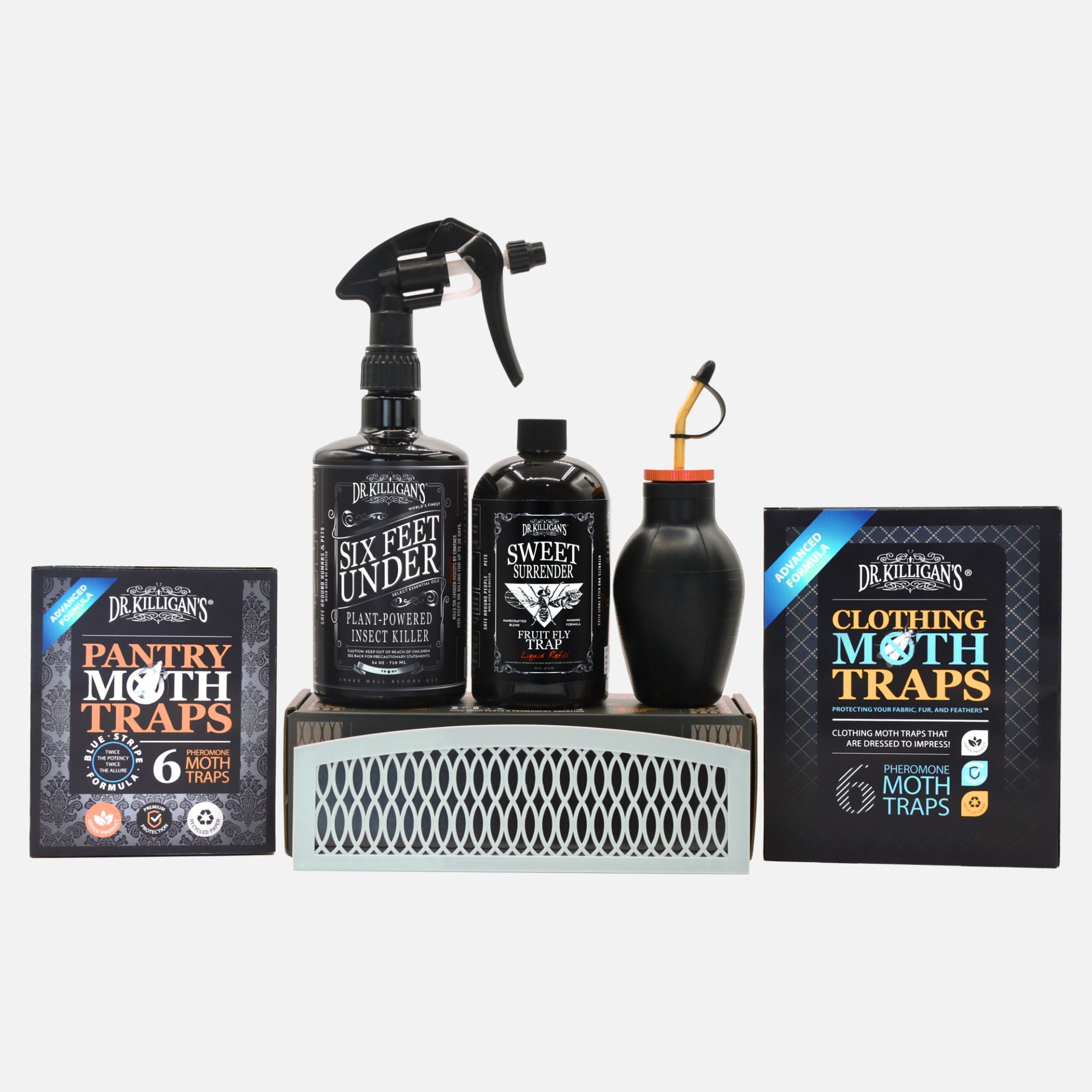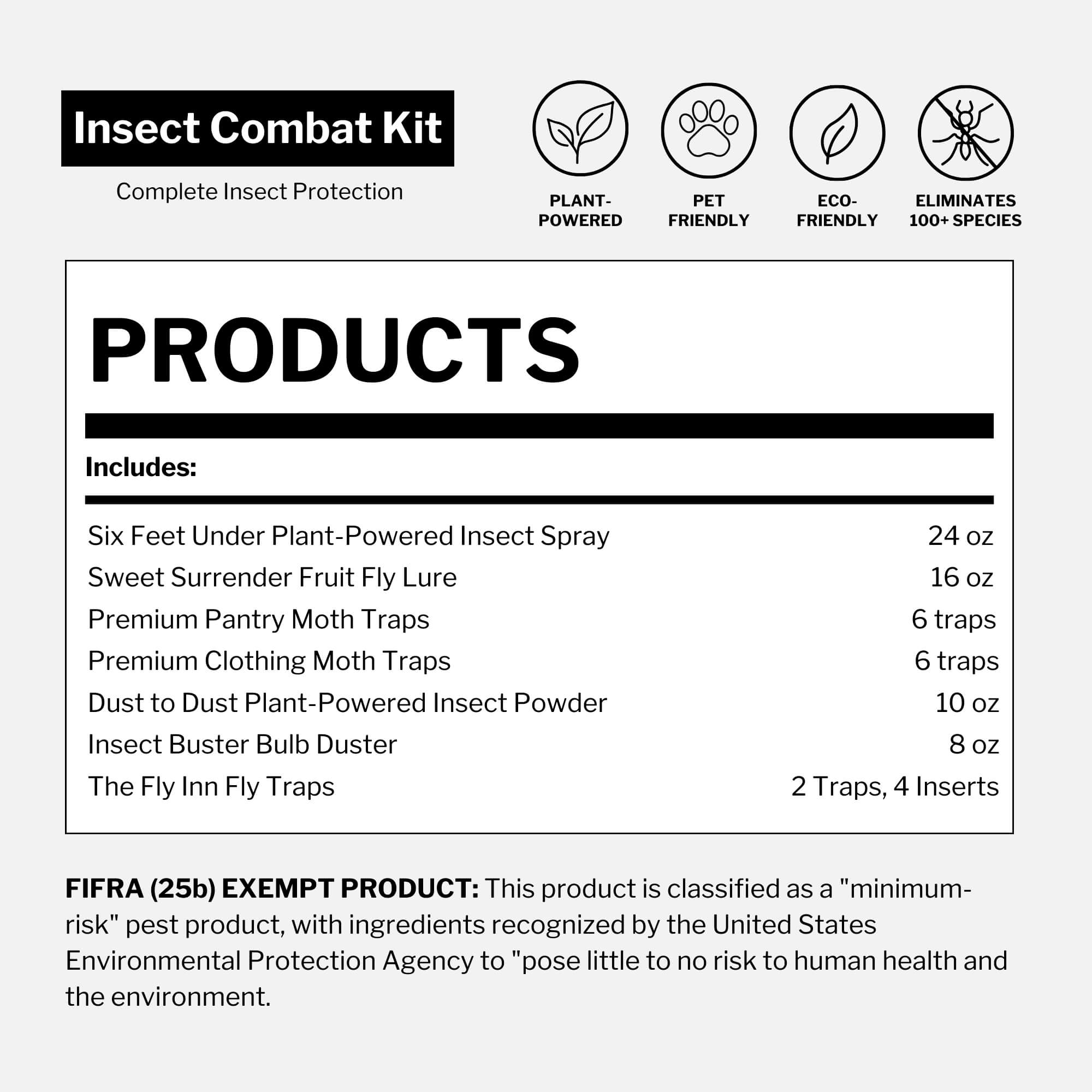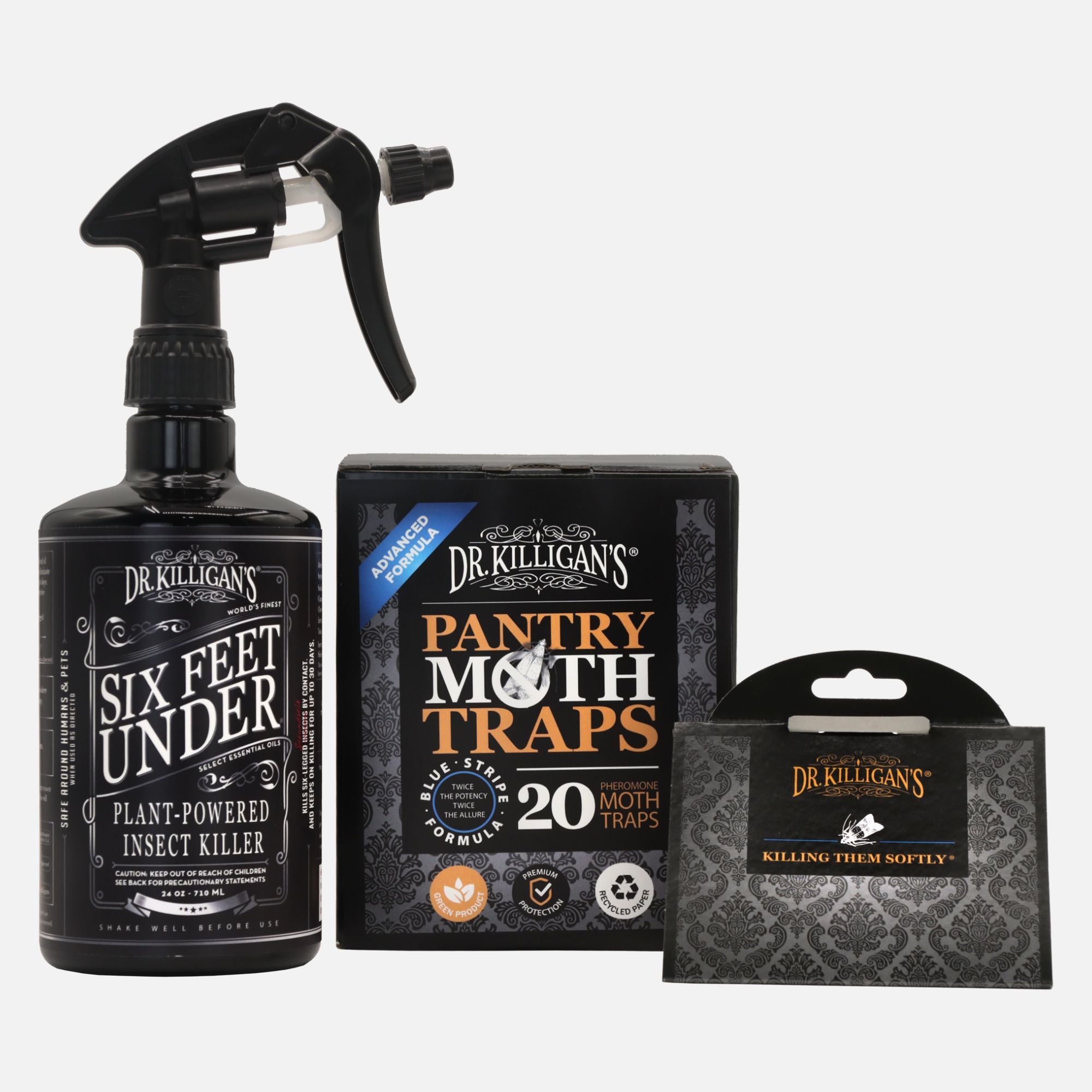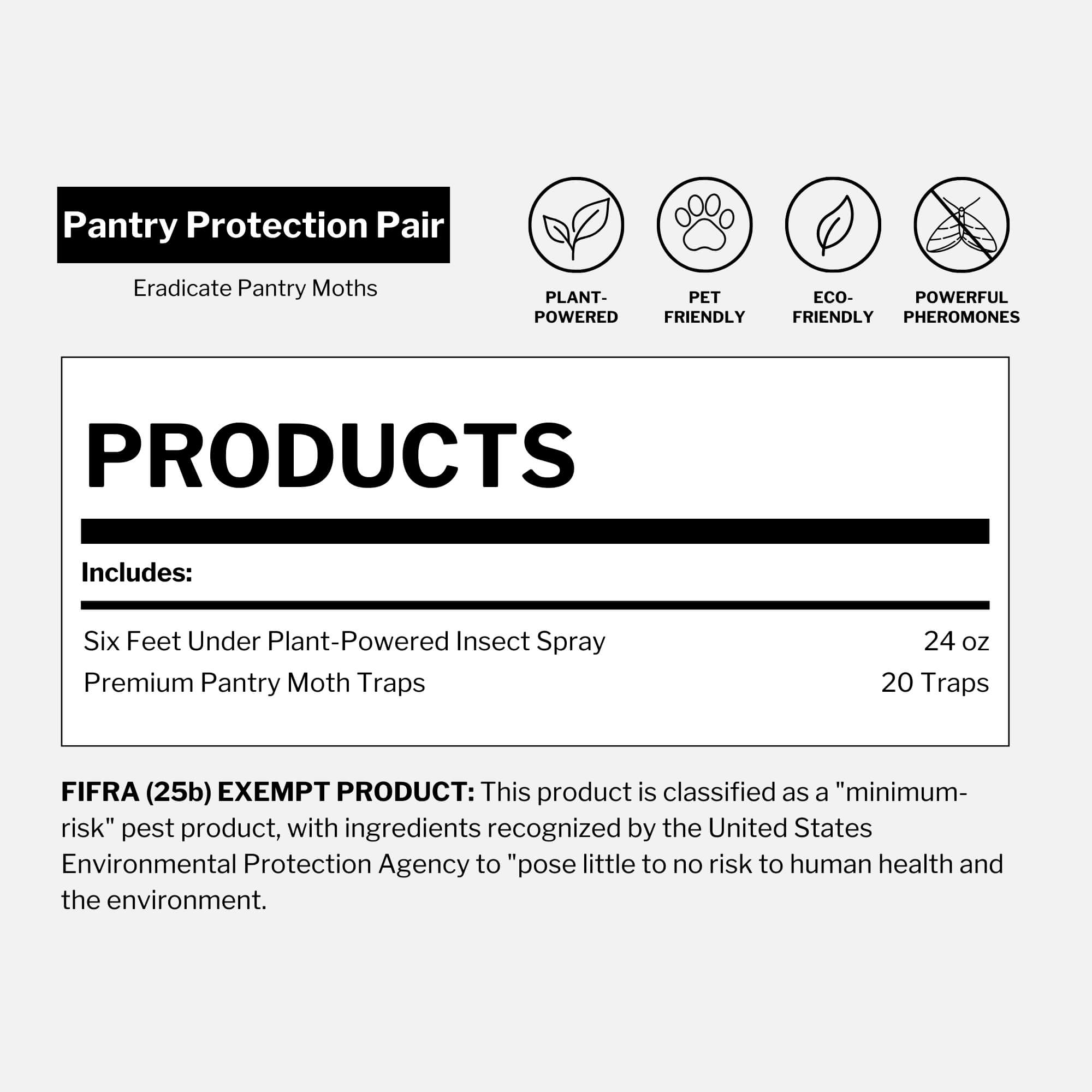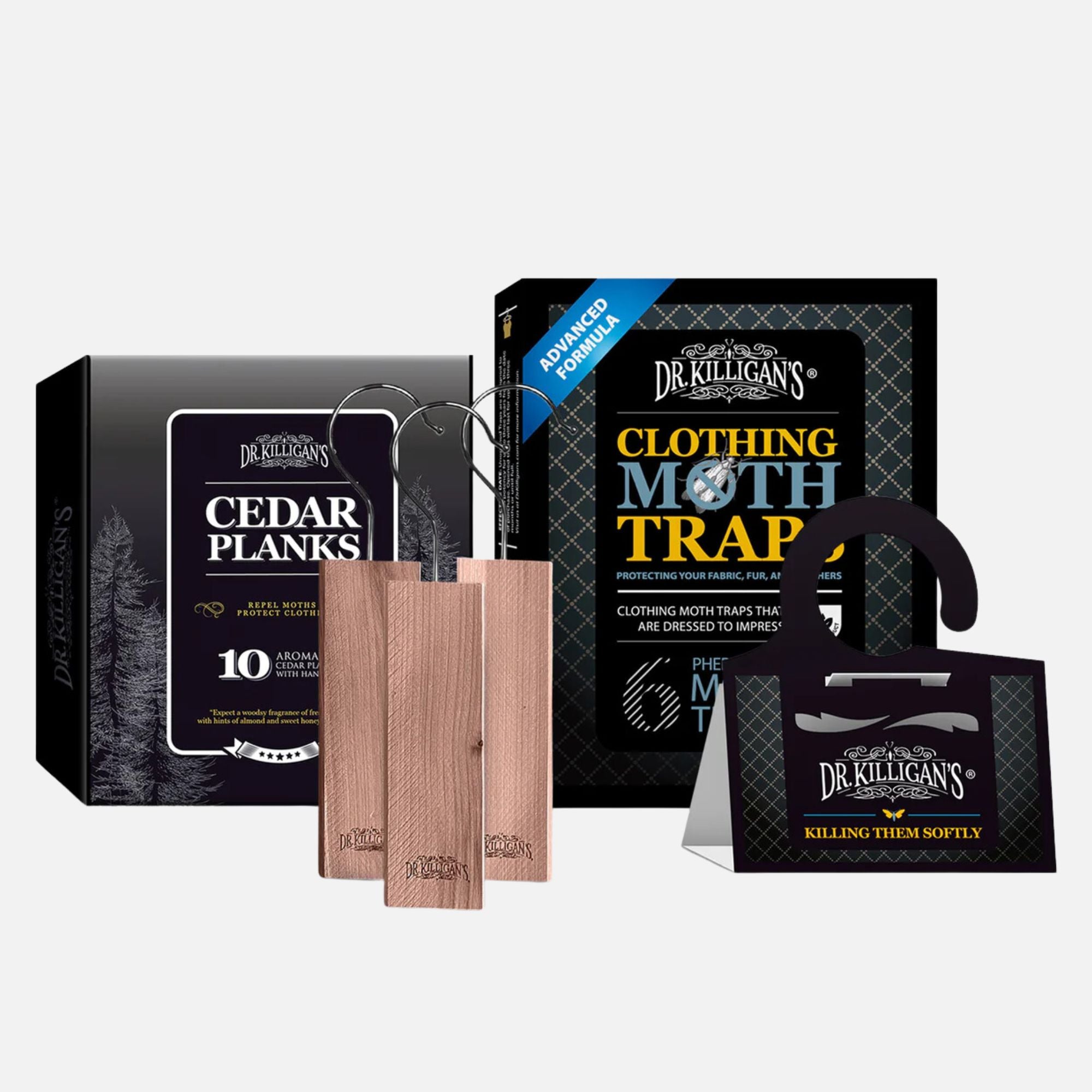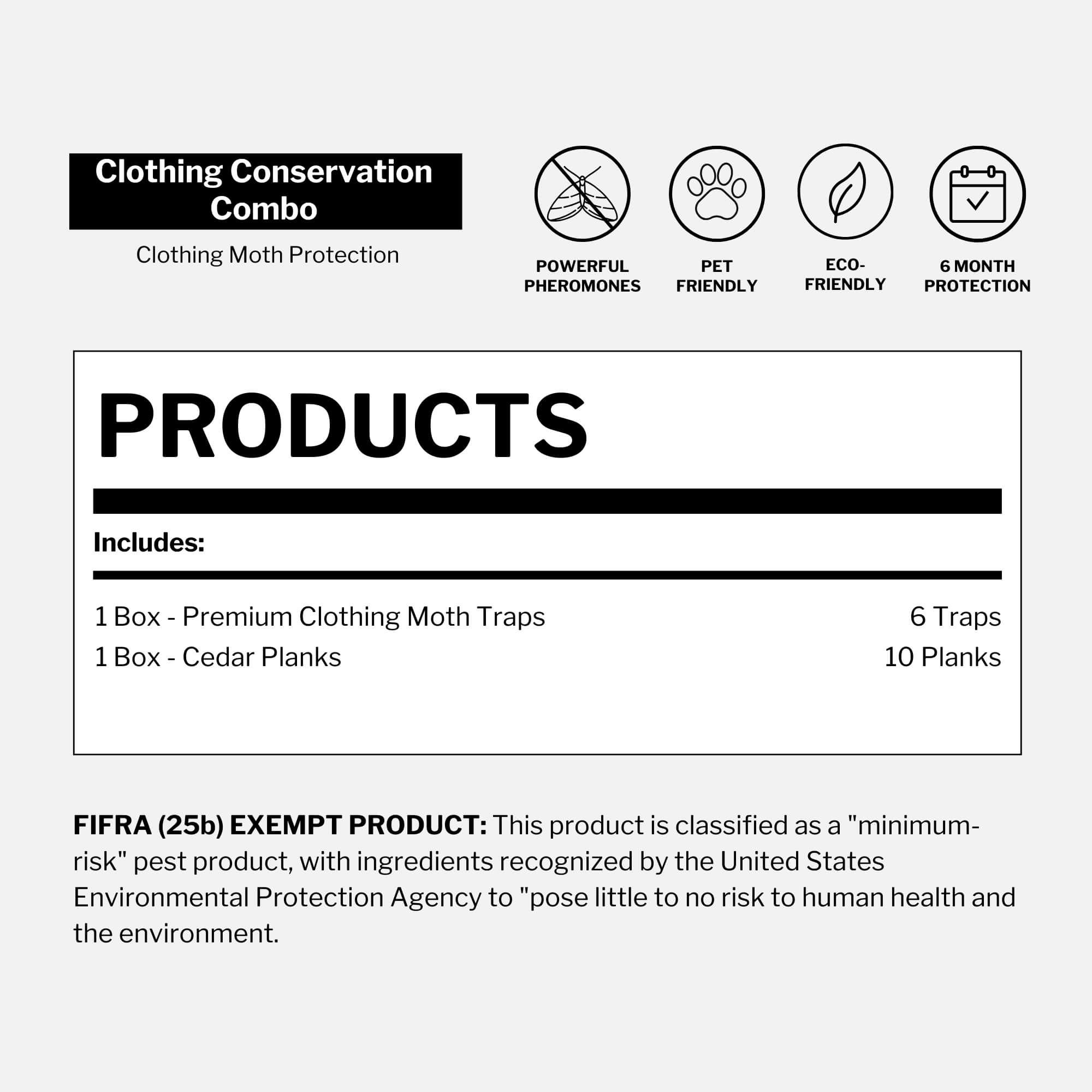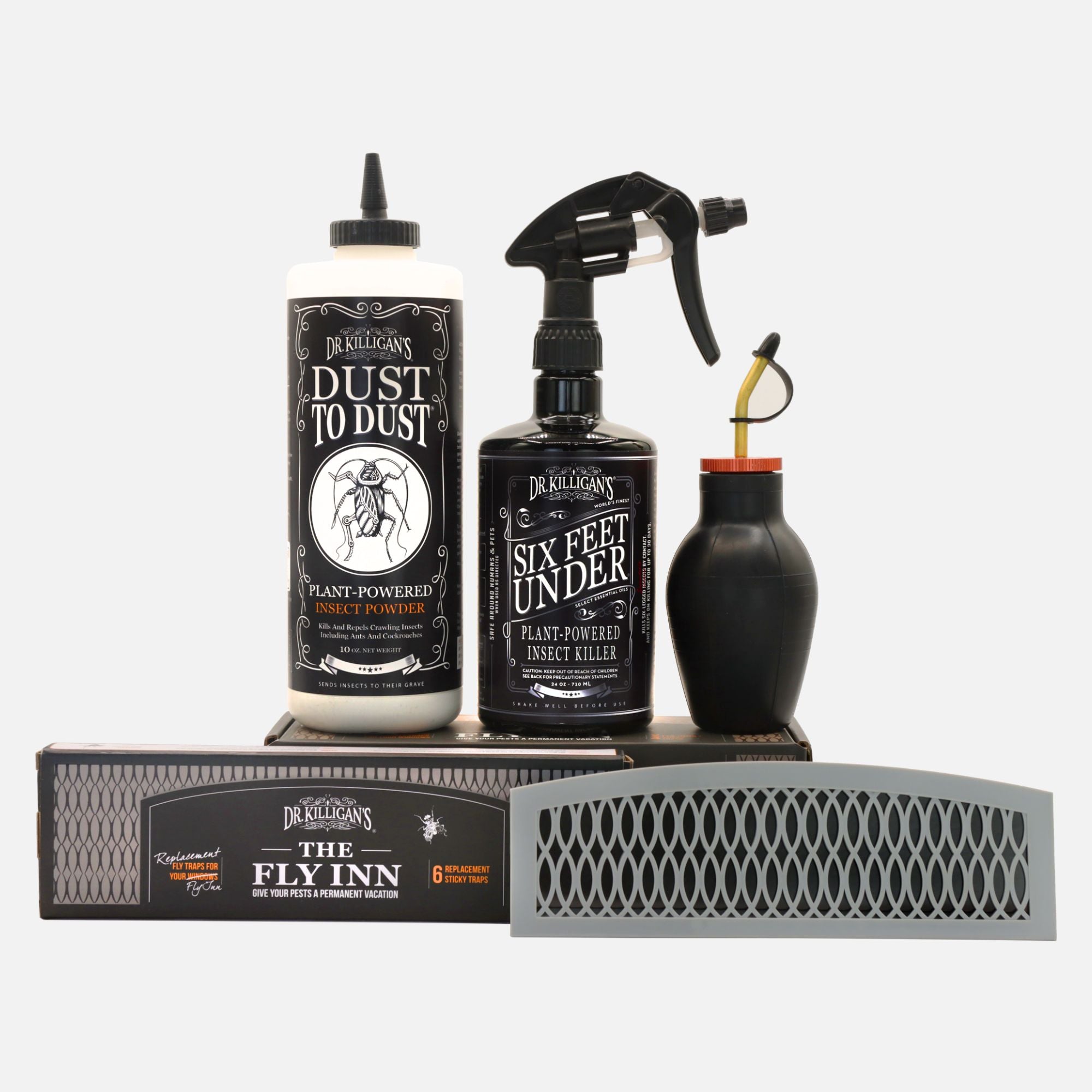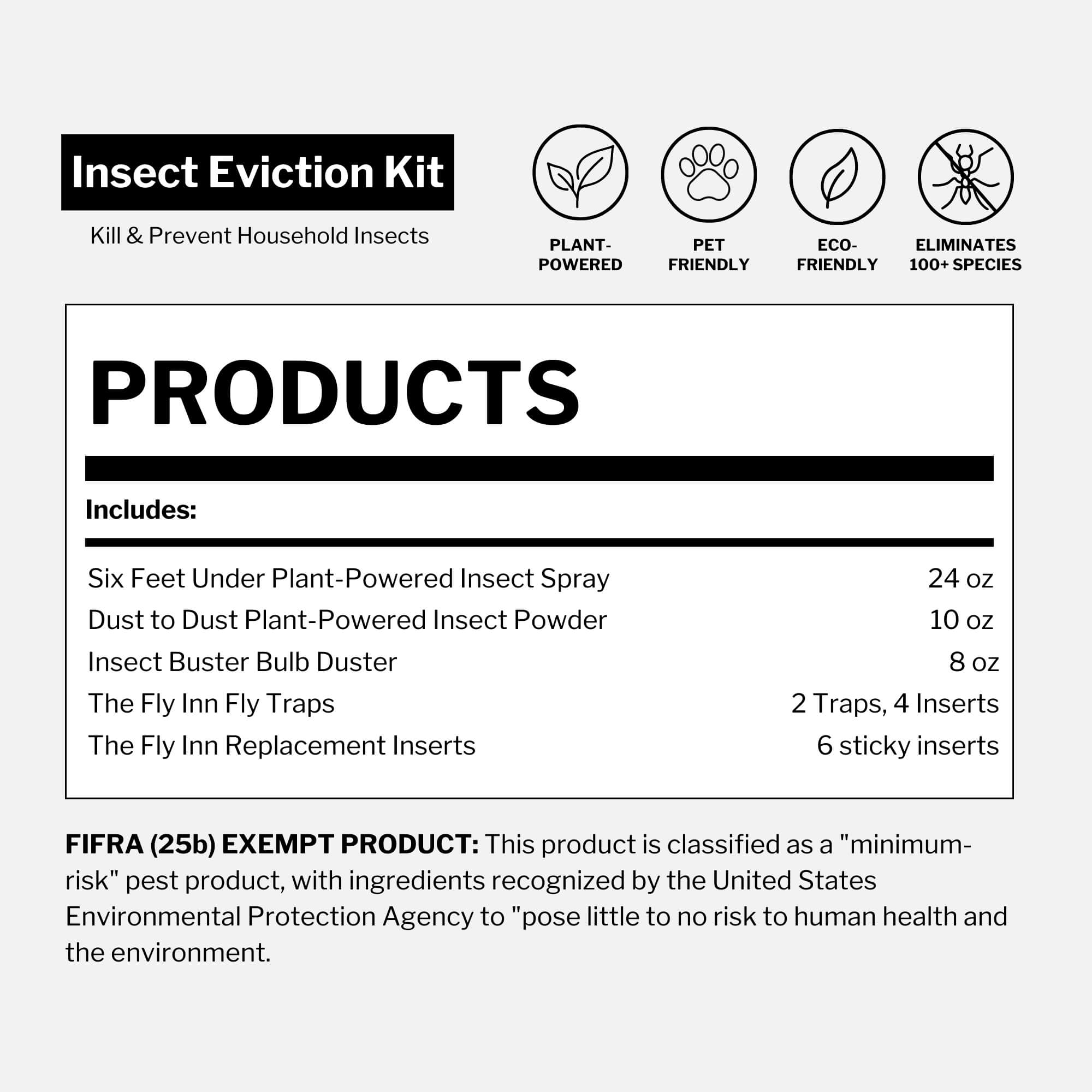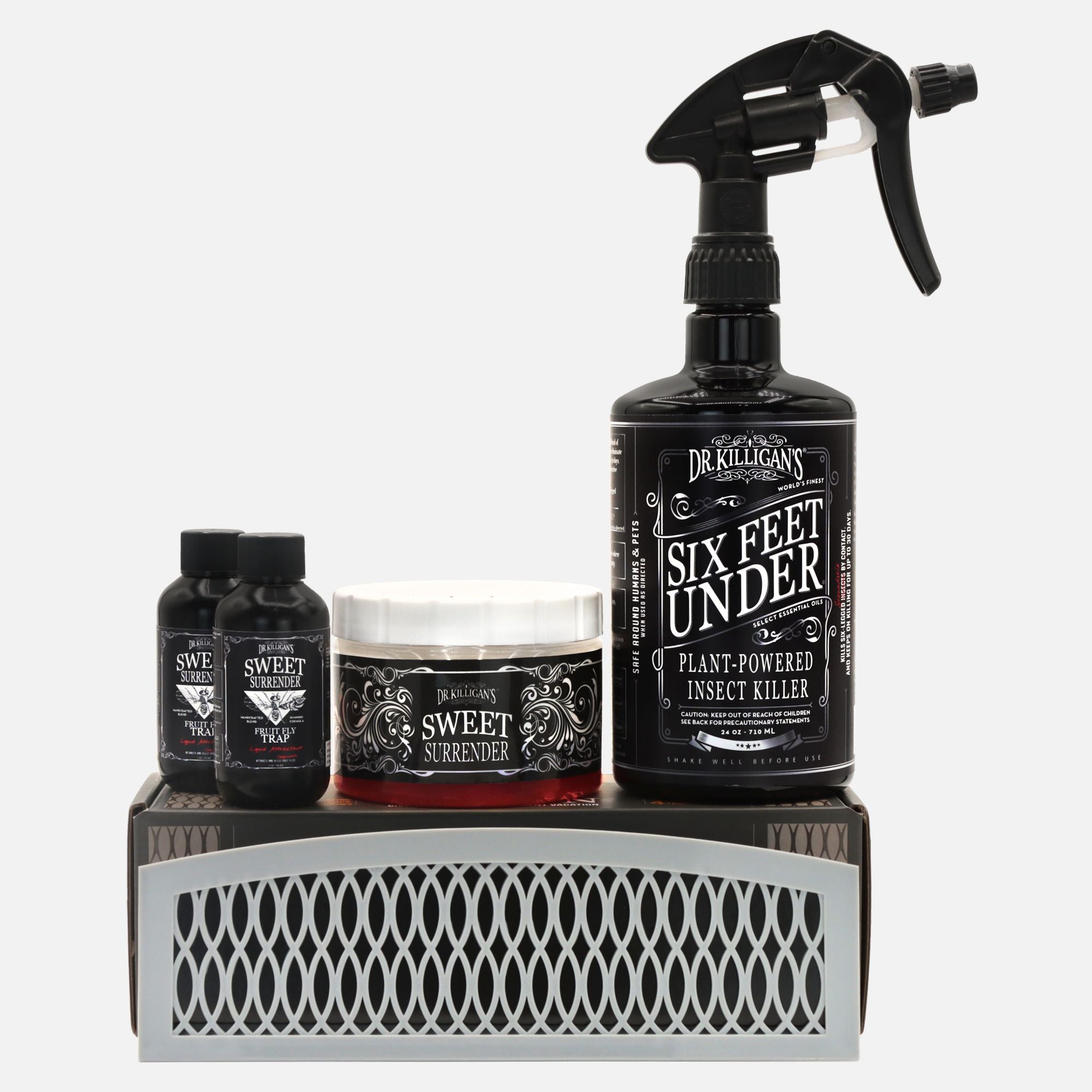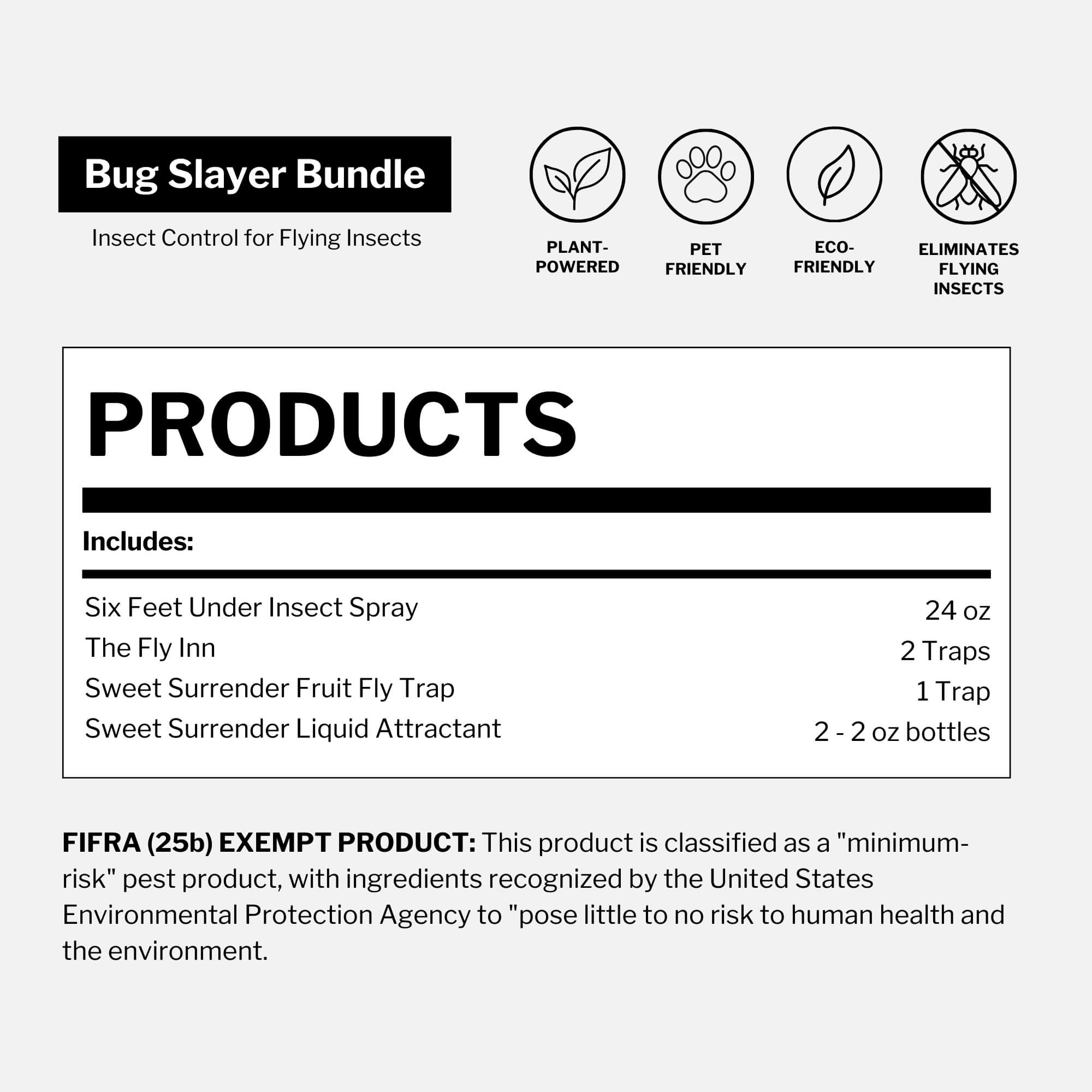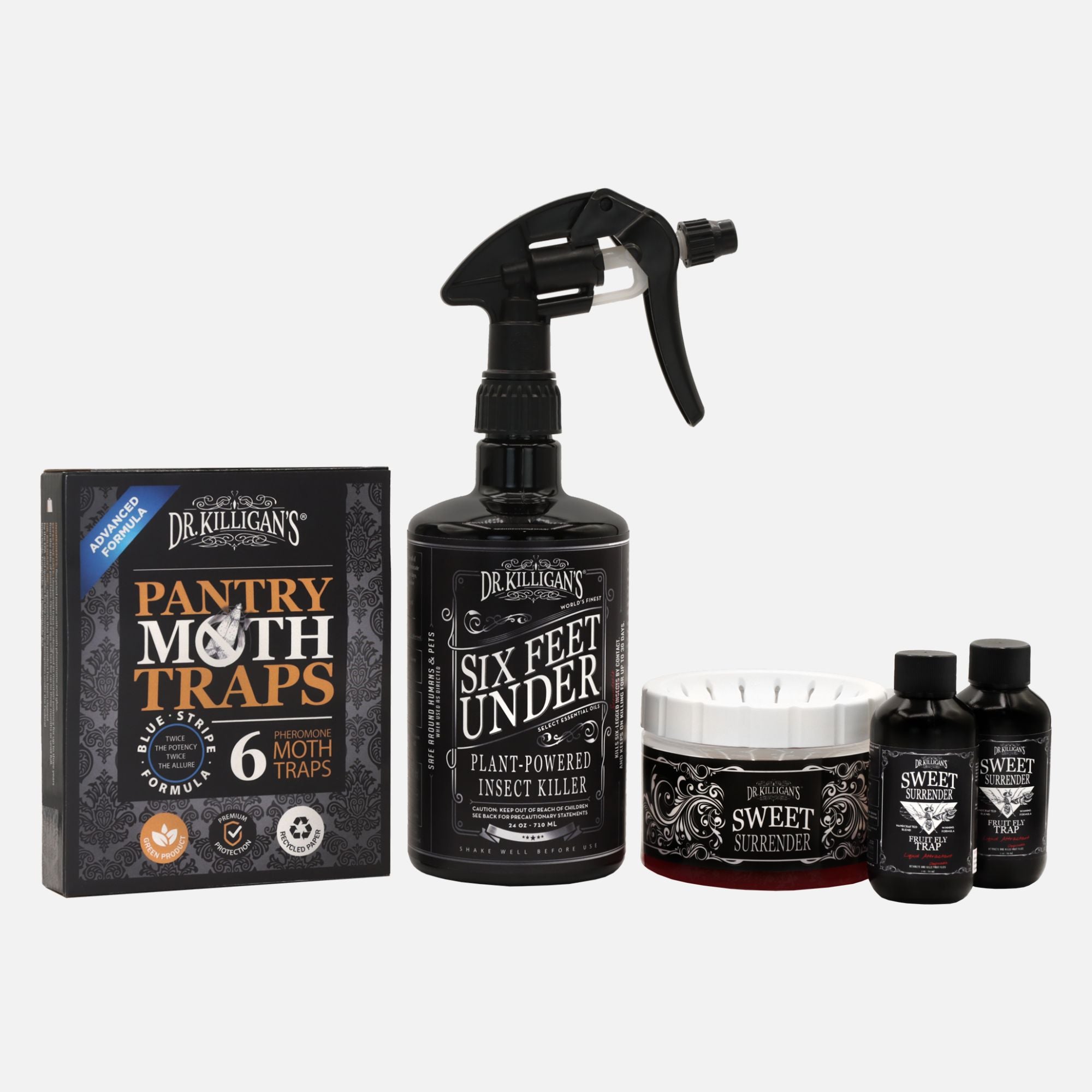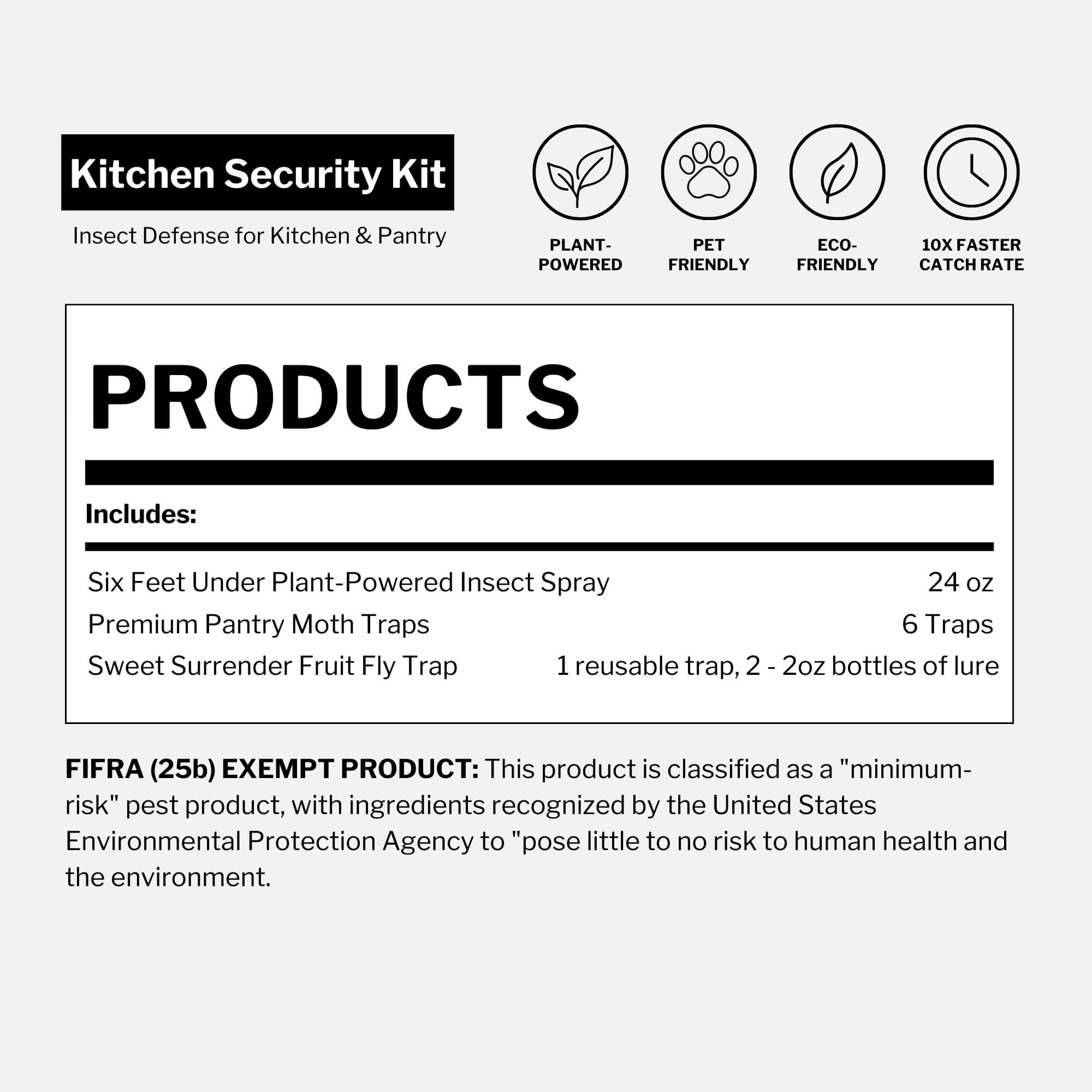When you have an insect problem around your home and you do not want to use poisonous over-the-counter products, there are two safe non-toxic solutions: diatomaceous earth or Dr. Killigan's Dust to Dust Non-Toxic Insect Powder. Dust to Dust is a safer and more effective alternative to diatomaceous earth for insect control, with proven kill times of up to 50% faster than diatomaceous earth.
After choosing a non-toxic insecticide, your next concern is how to get that product from its container to the areas of your home that you need to treat. This is where Dr. Killigan’s has your back. We have developed the perfect device that pairs ease and dependability and combines it with style that is synonymous with the Dr. Killigan’s name. We call it Dr. Killigan's Insect Buster™—a bulb duster for insecticides like Dust to Dust or diatomaceous earth.
The basics of Dr. Killigan’s Insect Buster
The Insect Buster is a bulb that houses and disperses insecticide powder for the purpose of pest control. It is the most effective method for dispersing powder to rid your home of the pests that are infesting or attempting to infest it. The Insect Buster:
- Is an incredibly sturdy DIY duster that is made for powder dispersal.
- Is easy to use. You invert the bulb, aim it, and squeeze in the desired location. A steel ball inside the bulb helps prevent clogging.
- Is easy to fill with the included funnel.
- Is easy to store with your powder inside.
- Has a compact design and holds 1 cup of powder. It is great for small hands, indoor use, and tight spaces. We also have a larger size that holds 1 ¾ cup of powder.
- Comes with two tips: a shorter curved tip and an extension rod for those hard-to-reach crevices. We also include a flexible tube to provide the ability to spray upward.
For your safety and the safety of others, if you're using diatomaceous earth (DE), you should use only food-grade DE powder in your Insect Buster. It is also advisable to wear a mask, goggles, and gloves when dispersing DE powder. While food-grade DE powder is safe for use around pets and humans, it is a fine powder and inhalation can irritate the eyes, the nose and nasal passages.
The Insect Buster in the home
The Insect Buster has many uses around the home. Once filled with your choice of non-toxic powder, attach the tip that best suits the job you are completing and get ready to squeeze. As described above, the bulb is simple to use. You invert it, point it into the area you want to spray, and you squeeze the bulb.
On the carpet
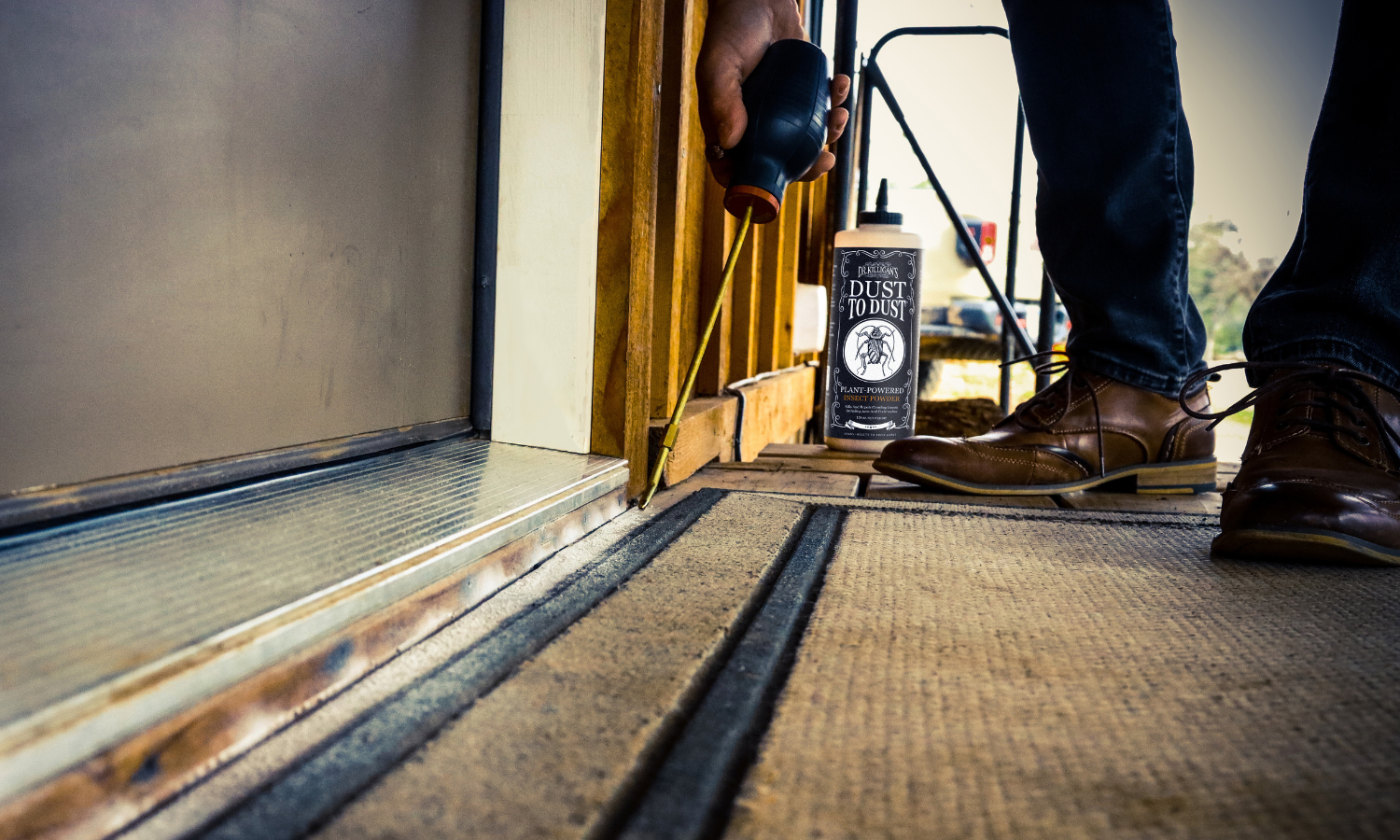
Using a bulb for the dispersement of your powder instead of sprinkling it by hand improves efficiency and eliminates waste. When you shake the powder from the bag or from a scoop, you are likely to leave piles and clumps, wasting product. With The Insect Buster, you can disperse over an area more evenly, and you have better control of the amount you use. Carpets are the main hangout for fleas and their eggs. It is a common misnomer that flea eggs stay on the pet, but they actually fall off the pet and remain in the carpet until they hatch from their cocoon stage, which can be up to a year later in some cases.
Along baseboards
Both carpeted areas and hardwood floors have baseboards. If these areas are not sealed, then they can be areas that tiny insects and their eggs can hide, especially fleas, tiny black ants, and roaches. The fine consistency of Dust to Dust and diatomaceous earth can also fit in these areas and be dispersed utilizing the Insect Buster.
Behind and underneath appliances
If appliances have the ability to be moved, then it is advisable to move them. The gunk and buildup underneath them aid in the attraction of bugs. A thorough cleaning helps in preventing bugs from returning after treatment. Dispersing your powder behind these areas is simple with the extension rod attachment that comes with every Insect Buster.
Behind heavy furniture
This is another area where the extension rod comes in handy. Large china cabinets and entertainment centers that would require a major remodel, can be accessed with the rod and a bit of ingenuity. When you spray your powder, ensure you are getting all the areas where you have noticed the presence of insects.
Within furniture
Some furniture can directly be affected by insects. Beds and bed bugs exemplify just that. In addition to dusting the area behind the bed, you should disperse your powder around the box spring and even between the mattresses. Use your Insect Buster to get into areas that may not be easily accessible, like within the box spring itself.
Inside walls
Another benefit of a powder is that it disperses better than a liquid spray. When you spray a liquid into a confined space, it soaks into the one area you spray it. When you take a powder, and you spray it through your Insect Buster nozzle into a space within a wall, like a light socket that leads into the wall cavity, it will disperse like a cloud, giving greater coverage. Your Insect Buster also comes with a plastic tubing that gives the ability to spray upward.
The Insect Buster in the garage or shed
While you want to be conservative within the home, you can be looser in the garage. With much less traffic, clean up is not much of a priority. Why should you be concerned with the garage or shed? The main reason is that the things you keep in here sometimes end up in the house. Boxes with holiday decorations, keepsakes, and other stored items can be brought into the home and could carry eggs or live critters, introducing them into your clean home. So, every area on your property is important.
Around the perimeter
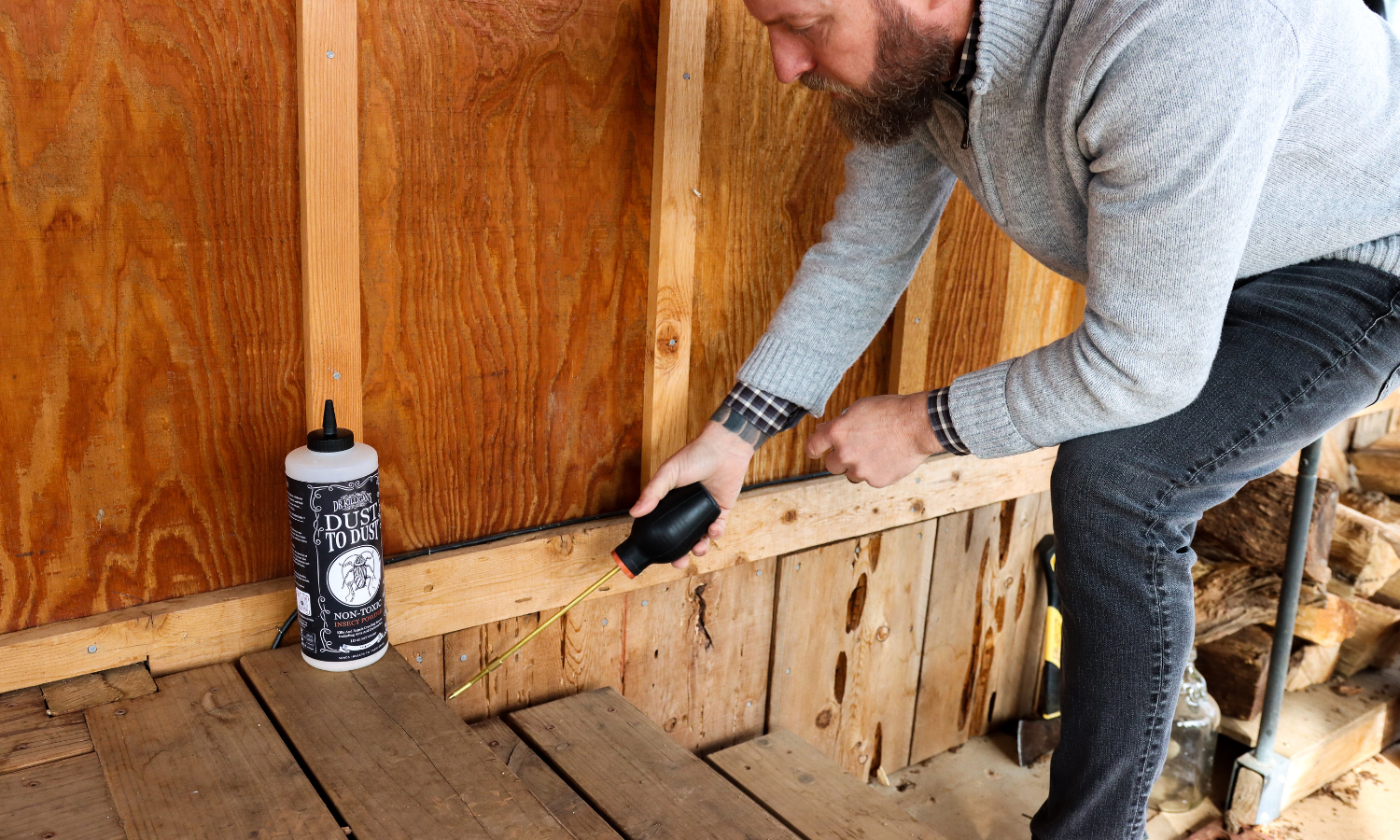
Inside and out of a garage or shed can be sprayed with your powder. Your Insect Buster can disperse into the cracks and crevices that liquid sprays fail to reach. These powders will not harm grass, plant life, or animals. They will dispose of the insects and other bug life that try and take up residence around and inside your garage and shed.
Behind heavy workbenches
Similar to moving that antique armoire, you may have a workbench that you cannot be moved. With the Insect Buster's extension nozzle, you can easily spray around it and into the crevices alongside, behind, and underneath. Remember, your Insect Buster bulb comes with a flexible tubing that gives the ability to spray upward should you need to reach an area above.
Behind and underneath appliances
Just as indoors, a good underbelly cleaning of appliances is a good idea if there is the ability. These areas get moist, and the buildup is a natural attraction for roaches and ants. Garages and sheds are also more susceptible to spider breeding due to their infrequent visitation. Another attributing cause is the open walls that these spaces usually have. But if you cannot move your appliance, you can reach these areas with your Insect Buster and its extension nozzle, if the appliance is larger than average.
Between benches and cabinets
When a workbench or storage cabinet is near a wall or you have more than one, space in between can be tight. This is where your powder can be especially helpful, and the extension nozzle does its best work. A liquid spray will only go so far or splatter the moment you try and spray into the area. But the powder will make its way into the tight space and help you rid the area of the pests that have infested your garage or shed.
Within cracks and crevices
This covers all the rest. Maybe you have a crack in a wall or the foundation, a hole in a wall, a large pile of firewood, or any gap too tight for a person to fit into, the Insect Buster can be used to disperse your powder to take care of the bug issue that you are having in that area.
Using Diatomaceous Earth in the garden
With DE being safe for humans and pets, it can be used in garden areas. In fact, food-grade DE is safe enough for consumption. Some even use it for a dietary supplement. While it is hard to imagine that something that would kill could be eaten, one needs to understand how DE works to grasp why it is safe for humans. DE is not a poison. It works by basically dehydrating the bug from the inside out. It gets stuck to their bodies, and it dries them out.
Note: Dust to Dust can also be safely used in your garden.
Ground areas where bugs have been seen
Use your Insect Buster to dust areas around potted plants, the soil where bugs have been seen, and within the garden rows themselves. It is best to dust when dry because DE is only effective when dry. As we mentioned, it dries out the insect. DE can get wet but will only do its job when the area is dry again.
Note: Dust to Dust is effective as a dry application and as a wet application.
On leaves where bugs have been seen
Leaves can be homes to slugs and aphids. Aphids attach to the leaf and drain the sap from the vein of the plant. Spraying food-grade DE or Dust to Dust will work just as it does for any other indoor insect. It will dry them out and dispose of them for good. This is where the flexible tube can be of use. Aphids hide on the undersides of leaves, so if you should need to disperse in an upward fashion, this tool will come in handy.
Under stairs, steps, and platforms
If you have a raised or multi-leveled garden that has stairs or steps, then you may have opportunities for spiders and even bees to set up operations. These dark, underbelly locations need to be examined and treated. Your Insect Buster is the perfect tool to use with food-grade DE or Dust to Dust to prevent critters from entering your garden area.
When using either powder on open floor areas of your home, the ideal time to let the powder sit is around three days. This will give the critters time to pick the dust up and for the powder to do its job. Then vacuum or sweep the powder up, clean the area, and reapply again in a couple of weeks, especially if you are dealing with fleas and roaches. This is because some eggs can hibernate for weeks or months.
One note about vacuuming—a shop vac is the preferred method to vacuum up these powders due to their abrasive nature. However, if you only have a standard vacuum, you need to be cautious. A newer model vacuum can get ruined easily. If you use a vacuum with a filter, you will need to stop and clean the filter frequently.
The final word on Dr. Killigan's Insect Buster for Diatomaceous Earth

The Dr. Killigan’s Insect Buster is designed to disperse Dust to Dust or diatomaceous earth (DE). Dust to Dust is a powder insecticide that is non-poisonous and has kill times of up to 50% faster than diatomaceous earth. It is known to be safe for humans and pets and plants. Dr. Killigan’s Insect Buster bulb is sturdy, easy to aim, and easy to store with either powder inside of it. You can use it indoors and outdoors to rid your home of the insects that are trying to infest it.
All of Dr. Killigan’s pest control products are all-natural, 100% safe for people and pets, and non-toxic. Our dream is a life without bugs, safely, peacefully, and full of class.
Our team of professionals is dedicated to perfecting the art of Killing Them Softly®. We have designed 100% toxin-free products that are not only safe, but are also created with style, restoring peace of mind, and returning “classy” to your home.
We are continually raising the bar in toxin-free pest control remedies. All our products come in a design that is pleasing to the eye and carry a 100% satisfaction guarantee. If you are not satisfied for any reason, contact us, and we will not hesitate to make things right.




